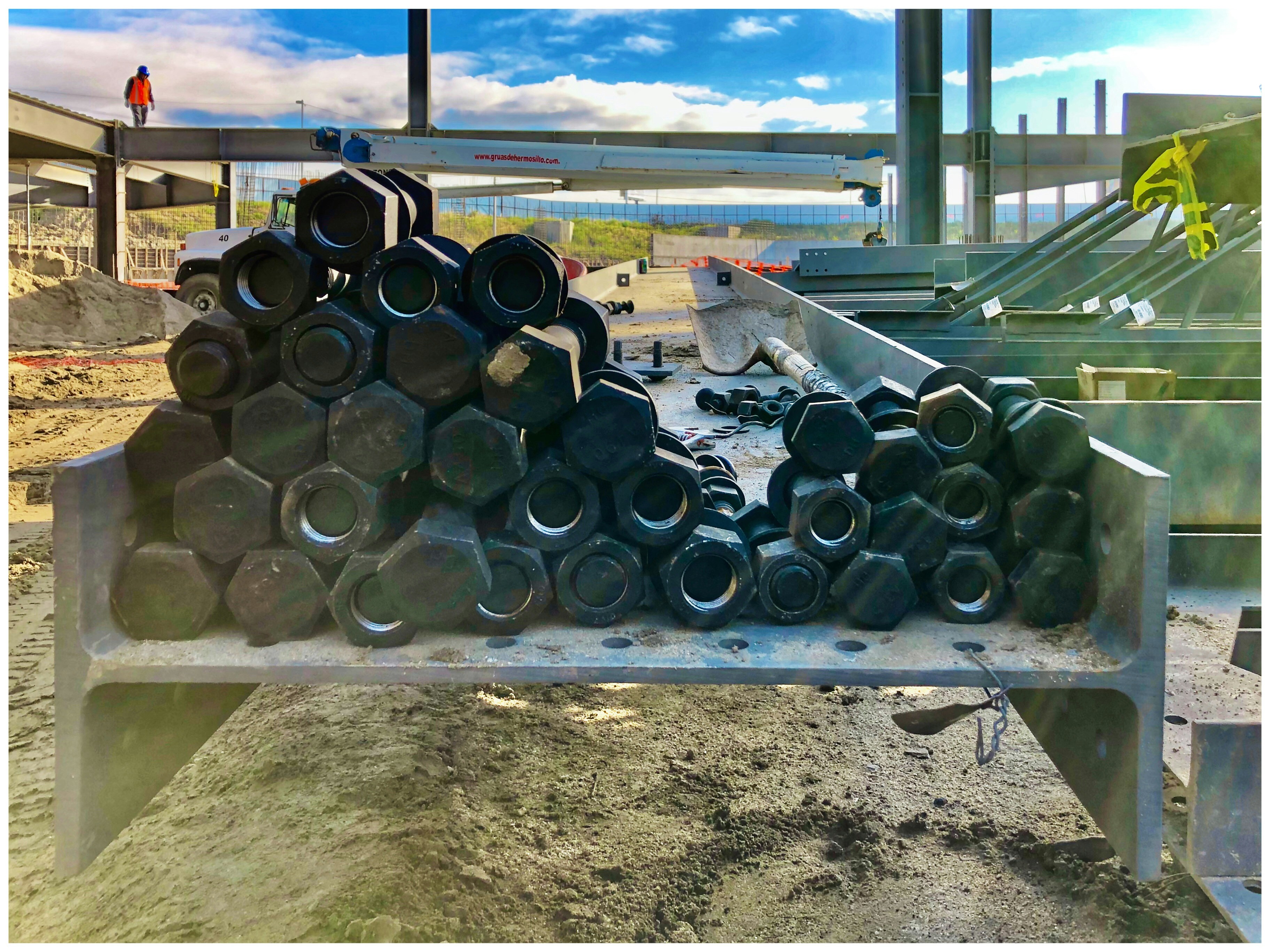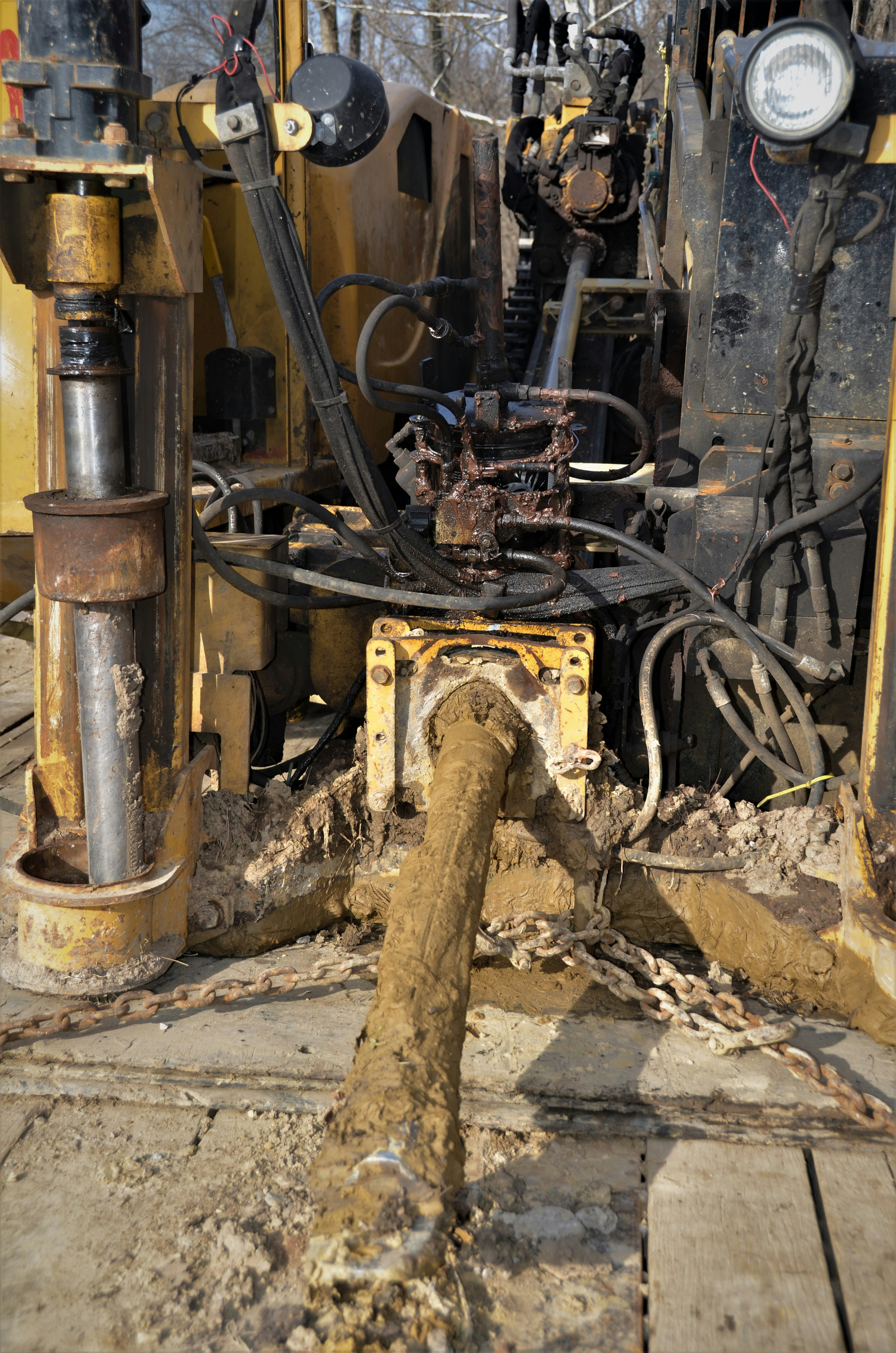Introduction

When it comes to drilling operations, understanding the importance of drill pipe weight is crucial for achieving optimal efficiency and performance. Different sizes and weights of drill pipes play a significant role in determining the success of any drilling project. The impact of drill pipe weight on drilling efficiency cannot be overstated, as it directly affects the speed and effectiveness of the entire process.
Understanding the Importance of Drill Pipe Weight
Drill pipe weight is a critical factor in drilling operations as it influences the overall stability and performance of the drilling equipment. Whether it's 2 7/8 drill pipe weight or 2 3/8 drill pipe weight, thoroughly understanding these measurements is essential for ensuring safe and efficient drilling processes. The correct drill pipe weight can make all the difference in achieving successful outcomes.
Exploring Different Sizes and Weights of Drill Pipe
Exploring drill pipes' various sizes and weights allows for a comprehensive understanding of their impact on drilling operations. Knowing how much 2 3/8 drill pipe weight per foot or 2 7/8 drill pipe weight per foot provides valuable insights into the load-bearing capacity and structural integrity required for different drilling tasks. This knowledge is instrumental in making informed decisions about equipment selection.
How Drill Pipe Weight Impacts Drilling Efficiency
Drill pipe weight plays a crucial role in achieving efficient drilling. Here's why:
- Impact on Drilling Performance: The weight of the drill pipe directly affects factors like speed, accuracy, and overall success of the drilling operation. The right size, weight, and material combination are essential for optimal performance.
- Weight and Downhole Stability: Heavier drill pipe applies more weight to the bit, which is crucial for penetrating more complex formations and maintaining better wellbore stability, especially in directional drilling applications.
- Optimum Selection for Efficiency: Choosing the appropriate drill pipe weight allows for efficient drilling by balancing factors like applying enough force on the bit while minimizing strain on the equipment and avoiding unnecessary energy consumption.
Understanding the relationship between drill pipe weight and drilling efficiency is critical for selecting the right equipment and achieving successful drilling operations.
What is Drill Pipe Weight?

Understanding the Basics of Drill Pipe Weight
Drill pipe weight refers to the total weight of the drill pipe used in drilling operations. It is a crucial factor in determining drilling projects' overall efficiency and success. The weight of the drill pipe impacts its ability to withstand pressure and maintain stability during drilling, making it essential for smooth operations.
Importance of Knowing 2 7/8 Drill Pipe Weight and 2 3/8 Drill Pipe Weight
Drill pipe weight is a critical factor in planning and executing drilling projects. Here's why understanding weight is essential:
- Weight Impacts Performance: Different drill pipe sizes, like 2 7/8" and 2 3/8", have varying weights that affect their ability to handle drilling depth, pressure, and stress.
- Selecting the Right Pipe: Knowing weight lets you choose the most suitable drill pipe for your specific drilling needs. A heavier pipe might be needed for deeper wells, while a lighter option could be ideal for shallower depths or situations requiring easier maneuverability.
- Optimizing Drilling Efficiency: Choosing the suitable weight drill pipe helps maximize drilling efficiency. Selecting a pipe too heavy for the job can be wasteful, while a lighter option might not provide enough strength for the task at hand.
By understanding drill pipe weight, you can make informed decisions for efficient and successful drilling projects.
Exploring Drill Pipe Weight Per Foot
The concept of drill pipe weight per foot involves calculating the weight of the one-foot length of the drill pipe. This measurement is essential in determining load capacities, pressure tolerance, and overall handling characteristics while drilling. Understanding this aspect allows for better planning and decision-making during drilling operations.
Understanding the weight per foot of drill pipe also plays a crucial role in selecting the right equipment. Different drilling environments and depths require varying levels of strength and durability from the drill pipe. By knowing the weight per foot, drilling teams can make informed decisions about which type and size of drill pipe to use, ensuring that it can withstand the specific demands of the operation. This knowledge ultimately contributes to a more efficient and successful drilling process.
Drill Pipe Weight Chart

Analyzing 4 1/2 Drill Pipe Weight Per Foot
When analyzing the 4 1/2 drill pipe weight per foot, it's important to consider the impact of this specific size on drilling operations. The weight per foot of this drill pipe size is crucial in determining drilling projects' overall efficiency and success. Understanding how the weight per foot varies within this specific size is essential for making informed decisions about its usage.
Understanding the Variations in Drill Pipe Weight
Drill pipe weight can vary significantly based on material composition, heat treatment, and overall design. Understanding these variations is crucial to select the most suitable drill pipe for specific drilling projects. Whether it's 2 7/8 drill pipe weight or 2 3/8 drill pipe weight, knowing these variations ensures that drilling operations are carried out with optimal efficiency and safety.
How Drill Pipe Weight Chart Impacts Drilling Operations
The drill pipe weight chart is a valuable tool for drilling professionals. It provides detailed information about the weight per foot of different drill pipe sizes. This chart allows for easy comparison and selection of the most appropriate drill pipe based on specific project requirements. This chart provides drilling operations to be strategically planned and executed to maximize efficiency and productivity.
The drill pipe weight chart also plays a crucial role in ensuring the safety of drilling operations. By accurately determining the weight per foot of the drill pipe, drilling professionals can avoid overloading the equipment and risking potential accidents or damage to the drilling rig. This proactive approach to safety protects personnel and equipment and minimizes downtime and costly repairs, ultimately contributing to a more efficient and successful drilling operation.
Impact of Drill Pipe Weight on Drilling Performance

As drill pipe weight directly impacts drilling efficiency, it's crucial to understand the relationship between the two. The 2 7/8 drill pipe weight and 2 3/8 drill pipe weight per foot significantly determine how effectively drilling operations can be carried out. By exploring these weights and their impact on performance, drill operators can optimize their processes for better results.
Exploring the Relationship Between Drill Pipe Weight and Drilling Efficiency
The relationship between drill pipe weight and drilling efficiency is delicate. While heavier drill pipes may provide more stability and force, lighter ones offer increased maneuverability. Understanding this relationship allows operators to decide which weight is best suited for specific drilling conditions, ultimately impacting overall efficiency.
The weight distribution of drill pipes plays a crucial role in drilling operations. Heavier drill pipes can provide more stability and force, essential for maintaining control and precision during drilling. On the other hand, lighter drill pipes offer increased maneuverability, allowing operators to navigate challenging geological formations more easily. By understanding the impact of weight distribution on drilling operations, operators can optimize their equipment for specific conditions, ultimately improving overall efficiency and productivity.
Understanding the Role of Weight Distribution in Drilling Operations
Weight distribution is essential in drilling operations as it affects the stability and control of the entire process. The distribution of 2 7/8 drill pipe weight per foot or 2 3/8 drill pipe weight per foot is crucial in ensuring that the force applied during drilling is evenly distributed, preventing unnecessary strain on equipment and enhancing overall performance.
How Much Does Drill Pipe Weight Affect Drilling Speed?
Drill pipe weight plays a crucial role in drilling efficiency, influencing both speed and stability. Here's how:
- Impact on Penetration Rate: Heavier drill pipes exert a greater force on the drill bit, leading to faster penetration rates in harder formations. However, excessive weight can be counterproductive in softer formations.
- Stability and Vibration: Heavier drill pipes enhance stability and reduce vibrations during drilling, particularly in hard rock. This translates to smoother operation, less wear and tear on equipment, and, ultimately, faster drilling speeds.
- Maneuverability: Lighter pipes offer excellent maneuverability, especially in tight spaces or wells with complex trajectories. This agility allows for faster drilling in these scenarios.
Choosing the optimal drill pipe weight requires balancing penetration force, stability, and maneuverability for the specific formation and wellbore conditions. This careful consideration maximizes drilling speed and overall drilling efficiency.
Factors Affecting Drill Pipe Weight

When it comes to drill pipe weight, material composition plays a crucial role in determining the overall weight of the pipe. Different materials, such as steel alloys and carbon steel, can significantly impact the weight of the drill pipe, making it essential to consider the material composition when selecting the right drill pipe for a specific drilling operation.
Analyzing Material Composition and its Impact on Drill Pipe Weight
The material composition of the drill pipe directly influences its weight, as different materials have varying densities and strengths. Steel alloys, for example, are commonly used in drill pipe manufacturing due to their high strength and durability, which can result in a heavier overall weight than other materials. Understanding how material composition affects drill pipe weight is essential for choosing the most suitable option for drilling projects.
Exploring the Influence of Heat Treatment on Drill Pipe Weight
Heat treatment is another critical factor that affects drill pipe weight. The process of heat treatment can alter the material's physical properties, including its density and strength, ultimately impacting the overall weight of the drill pipe. By exploring how heat treatment influences drill pipe weight, it becomes possible to make informed decisions about selecting heat-treated pipes that meet specific project requirements.
Understanding the Connection Between Drill Pipe Weight and Durability
Durability is closely linked to drill pipe weight, as heavier pipes often indicate greater strength and resistance to wear and tear during drilling operations. Understanding this connection is crucial for ensuring the selected drill pipes can withstand challenging drilling conditions without compromising performance or safety. Considering both durability and weight makes it possible to choose drill pipes that offer optimal reliability and longevity.
Choosing the Right Drill Pipe Weight
When it comes to drilling projects, selecting the appropriate drill pipe weight is crucial for success. Different projects require different drill pipe weights; using the wrong weight can lead to inefficiency and potential damage. Factors such as rock formations, drilling depth, and equipment capabilities must be considered when determining the ideal drill pipe weight for a specific project.
Importance of Selecting the Appropriate Drill Pipe Weight for Specific Projects
Choosing the right drill pipe weight for a specific project is essential for ensuring optimal drilling performance. The weight of the drill pipe directly impacts the drilling process, affecting factors such as speed, stability, and overall efficiency. By selecting the appropriate drill pipe weight, operators can maximize productivity and minimize potential issues during drilling operations.
How to Determine the Ideal Drill Pipe Weight for Different Rock Formations
Different rock formations require different levels of resistance during drilling. To determine the ideal drill pipe weight for specific rock formations, operators must consider hardness, density, and potential obstacles within the formation. Understanding these elements allows for informed decisions when selecting the most suitable drill pipe weight for each unique geological environment.
Impact of Incorrect Drill Pipe Weight Selection on Drilling Operations
Choosing the right drill pipe weight is critical for safe and efficient drilling operations. Here's why:
- Impact on Performance: Drill pipe weight significantly affects drilling. An improper weight, too light or heavy, can lead to inefficiencies and increased wear on equipment.
- Safety Concerns: Incorrect weight selection can pose safety hazards during drilling operations.
- Optimizing Your Project: By carefully assessing project needs and geological conditions, operators can choose the most appropriate drill pipe weight, maximizing efficiency and minimizing risks.
Selecting the right drill pipe weight is crucial for a successful drilling project. Careful consideration of project requirements and geological factors ensures optimal performance while minimizing safety concerns.
Maximize Efficiency Through Optimal Drill Pipe Weight

In conclusion, understanding the importance of drill pipe weight is crucial for maximizing drilling efficiency. By analyzing the 2 7/8 drill pipe weight, 2 3/8 drill pipe weight, and 4 1/2 drill pipe weight per foot, drilling professionals can make informed decisions about the optimal drill pipe weight for different projects.
Making Informed Decisions About Drill Pipe Weight
Drill pipe weight plays a significant role in the success of drilling operations. By considering factors such as material composition and heat treatment, professionals can make informed decisions about selecting the right drill pipe weight for specific projects. Understanding the variations in the drill pipe weight chart is essential for maximizing drilling efficiency.
Maximizing efficiency in drilling operations requires a deep understanding of how much 2 3/8 drill pipe weighs per foot and 2 7/8 drill pipe weighs per foot. Professionals can ensure that drilling operations run smoothly and effectively by choosing the appropriate drill pipe weight.
Ensuring Successful Drilling Operations with the Right Drill Pipe Weight
Ensuring successful drilling operations involves selecting the right drill pipe weight to match different rock formations. Incorrect drill pipe weight selection can lead to inefficiencies and potential risks during drilling operations. Therefore, it is crucial to prioritize choosing the right drill pipe weight for each project.

